Have you ever felt like your body is holding onto water like a camel in the desert? Or maybe you’ve noticed that your rings are a bit tighter than usual, and it’s not because you’ve been hitting the gym too hard. Well, my friend, it might be your lymphatic system acting up. But don’t worry, there’s a delicious way to give it some love—through tea!
The lymphatic system is like your body’s drainage system, a network of vessels and nodes that help remove waste, toxins, and excess fluid from your tissues. It’s also a key player in your immune system, helping to fight off infections. When it’s working well, you feel light and energetic. But when it’s sluggish, you might experience swelling, fatigue, or even frequent illnesses. Lymphatic drainage is the process of moving lymph fluid through this system to keep everything flowing smoothly, and certain teas can give it a boost.
In this article, we’ll explore the best teas for lymphatic drainage, how they work, and how you can incorporate them into your routine. So, grab a cup, and let’s dive into the world of teas that can help your lymphatic system shine.
Top Teas for Lymphatic Drainage
Here, we’ll break down the top teas, starting with the stars of the show: red root tea and cleavers tea. These are often highlighted for their direct benefits, but we’ll also cover green tea, dandelion tea, and ginger tea, which have supportive properties. Each section includes instructions on how to prepare them so you can start sipping right away.
Red Root Tea: The Lymphatic Superstar
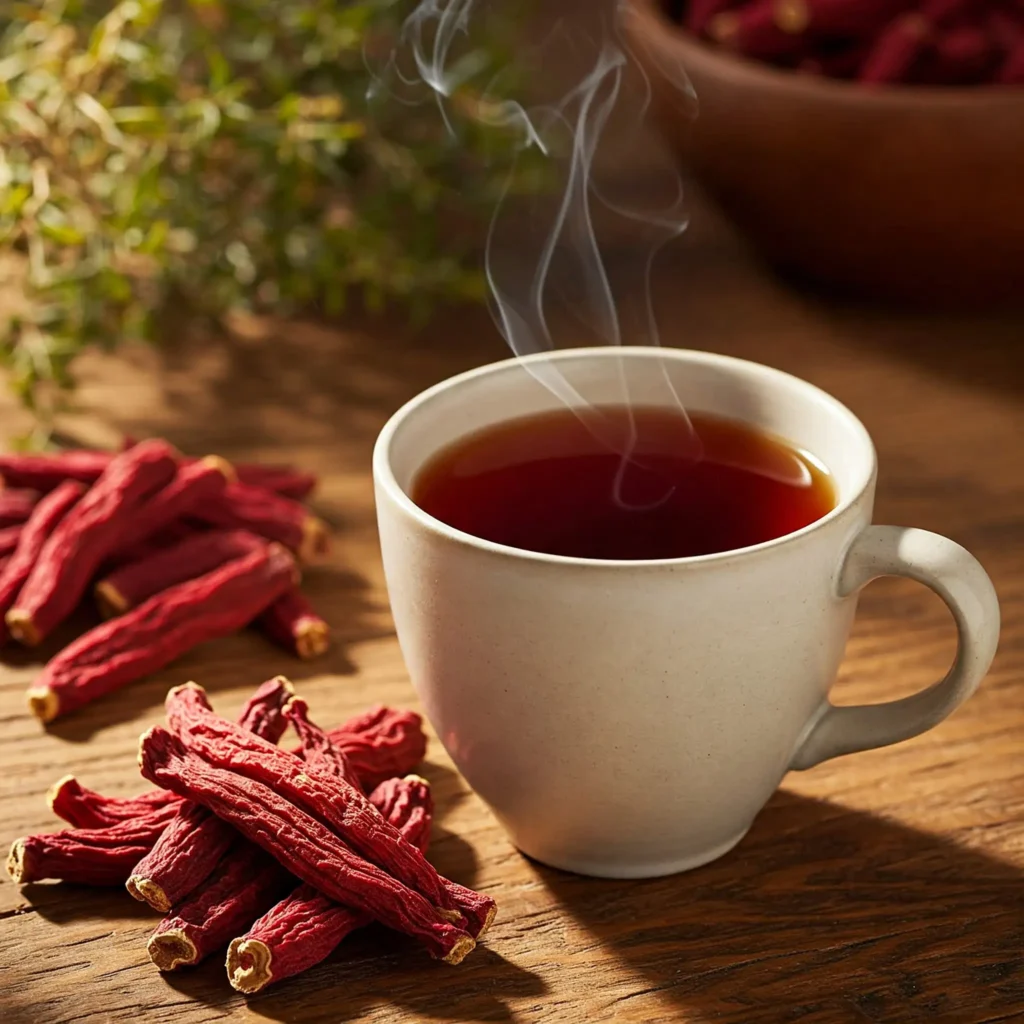
If there’s a tea that deserves the title of “best tea for lymphatic drainage,” it’s red root tea. Made from the root of the Ceanothus americanus plant, also known as New Jersey tea, this herb has been used for centuries to support the lymphatic system. It’s known for reducing swollen lymph nodes, decreasing lymph congestion, and relieving fluid stagnation, making it a go-to for conditions where the lymphatic system is overloaded.
A study published in PMC found that homeopathic preparations of Ceanothus americanus improved spleen function and reduced the need for blood transfusions in thalassemic patients (Can Homeopathy Bring Additional Benefits to Thalassemic Patients on Hydroxyurea Therapy? Encouraging Results of a Preliminary Study). Since the spleen is a major organ in the lymphatic system, this suggests red root can have a positive impact on lymphatic health.
To make red root tea, steep 1-2 teaspoons of dried red root in hot water for 10-15 minutes. You can add honey or lemon to taste. Drinking 1-2 cups daily is recommended for best results. Have you ever tried red root tea before? It might just become your new favorite for feeling lighter and less puffy.
Cleavers Tea: The Gentle Cleanser
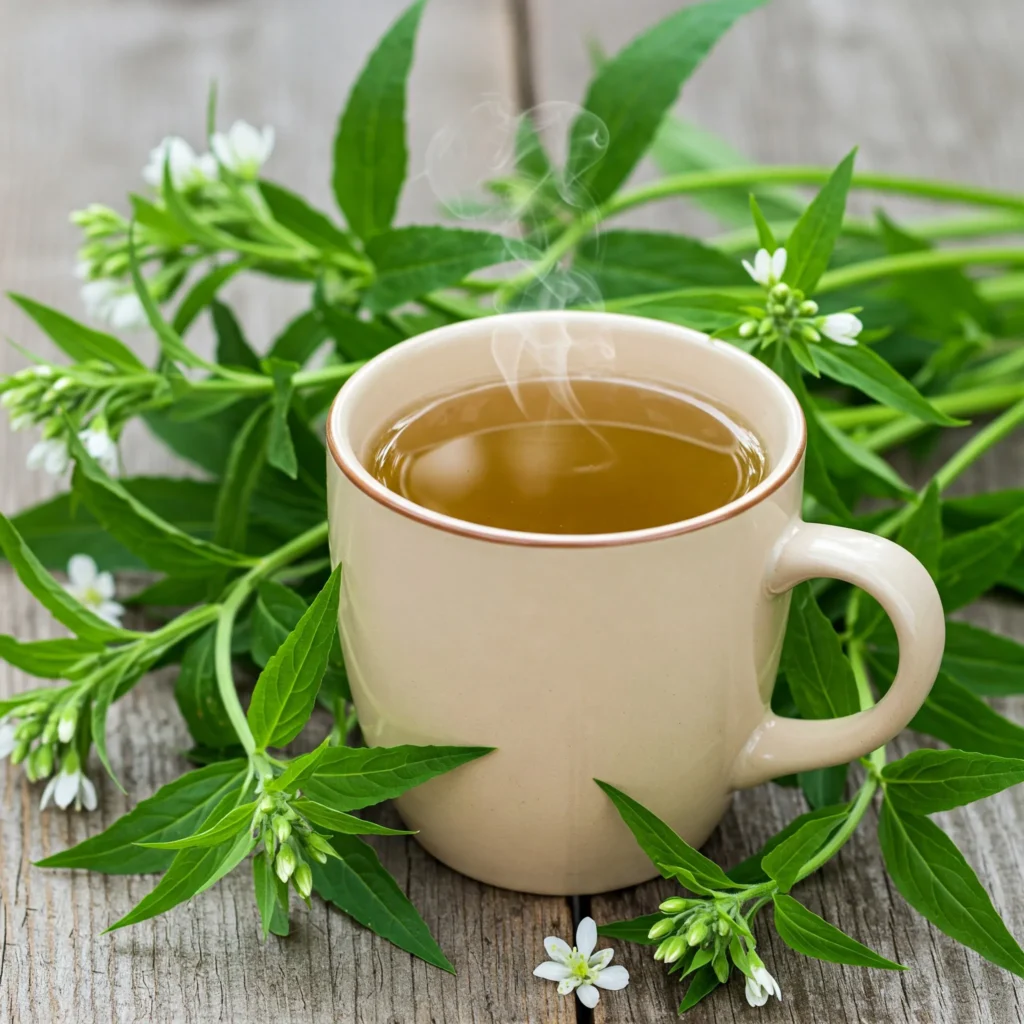
Cleavers tea, made from Galium aparine, might sound like something from a horror movie, but it’s actually a gentle herb that can help your lymph flow smoothly. It’s one of the best for conditions affecting the lymphatic system, easing congestion and supporting detoxification. Think of it as a solvent, helping to move lymph fluids and flush out toxins, which can reduce swelling and boost immune function.
A study in PMC showed that cleavers extracts stimulate the transformation of peripheral blood mononuclear cells, including T- and B-lymphocytes, suggesting immunomodulatory activity that can support the lymphatic system (Immunomodulatory Activity and Phytochemical Profile of Infusions from Cleavers Herb). This means it can enhance your body’s defense mechanisms, which is crucial for lymphatic health.
To prepare, steep 1-2 teaspoons of dried cleavers in hot water for 10 minutes. It’s got a crisp, cucumber-like taste, perfect for a refreshing detox drink. Try it in the morning to kickstart your lymphatic flow—it’s like giving your body a spring clean!
Green Tea: The Antioxidant Ally
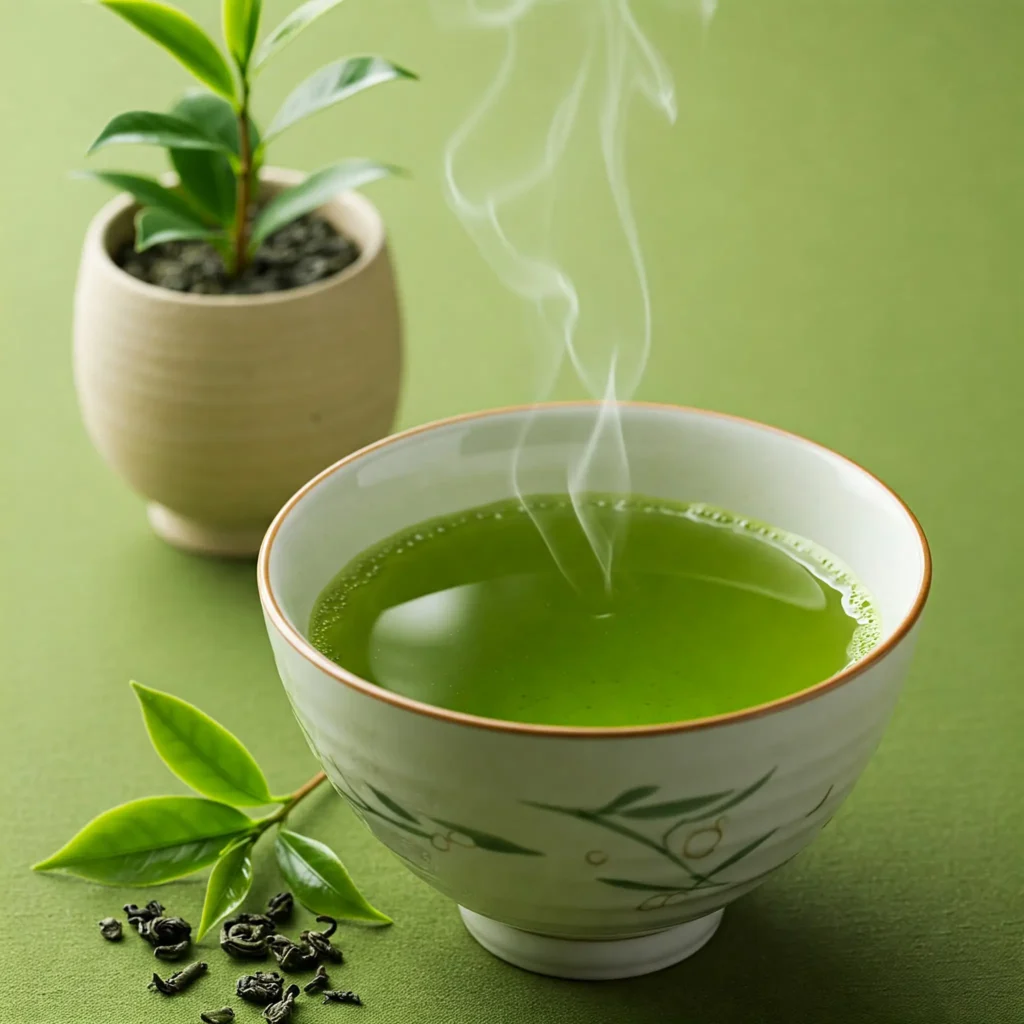
Green tea, made from Camellia sinensis, is a household name, and it’s not just for cozy afternoons. It’s rich in antioxidants like EGCG, which research suggests can reduce inflammation and support immune function. While direct studies on lymphatic drainage are limited, reducing inflammation can help keep your lymphatic system flowing, preventing blockages and supporting overall health.
Studies show green tea’s anti-inflammatory properties are well-documented, which can indirectly benefit the lymphatic system by reducing congestion (Green tea extract inhibits the lymphatic absorption of cholesterol and alpha-tocopherol in ovariectomized rats). It’s like a shield against inflammation, keeping your lymph vessels clear.
To make green tea, steep 1 teaspoon of green tea leaves in hot water (not boiling, about 175°F) for 2-3 minutes. Add a splash of lemon for extra zing. It’s a simple way to support your lymphatic health, and who doesn’t love a cup of green tea? It’s like a daily dose of wellness in a mug.
Dandelion Tea: The Diuretic Dynamo
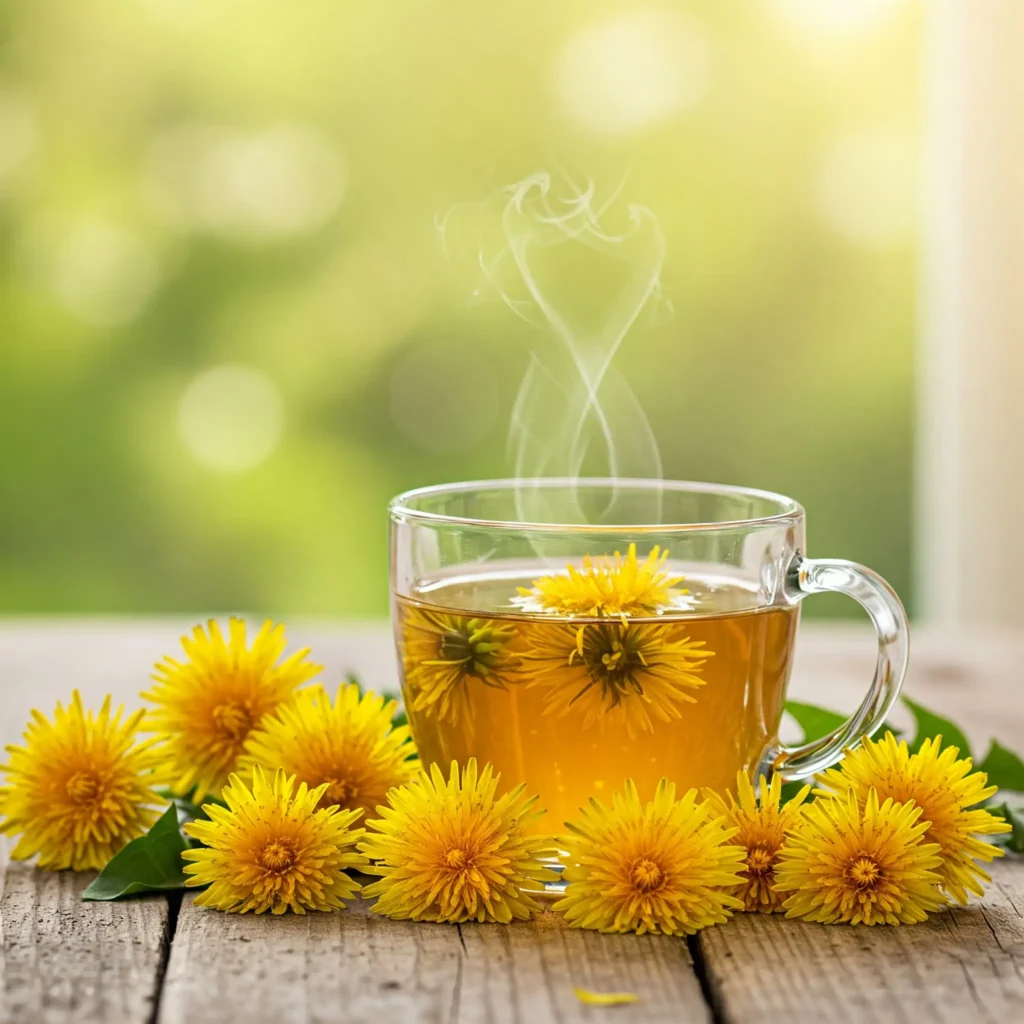
Dandelion tea, from Taraxacum officinale, is another powerhouse for lymphatic drainage. It’s known for its diuretic properties, helping to remove excess fluid and toxins, which can reduce water retention and support the lymphatic system. Traditionally, it’s used for detoxification, supporting liver and kidney function, which are connected to lymph health.
While there aren’t many direct studies, its diuretic effect is well-recognized, making it a great choice for easing swelling (9 Ways Dandelion Boosts Health). It’s like a natural flush for your system, helping your lymph flow freely.
To prepare, steep 1-2 teaspoons of dried dandelion root or leaves in hot water for 10 minutes. You can drink it hot or cold, and it’s perfect for those days when you feel a bit bloated. Ever tried dandelion tea? It might just be the unexpected hero your lymphatic system needs.
Ginger Tea: The Warming Wonder
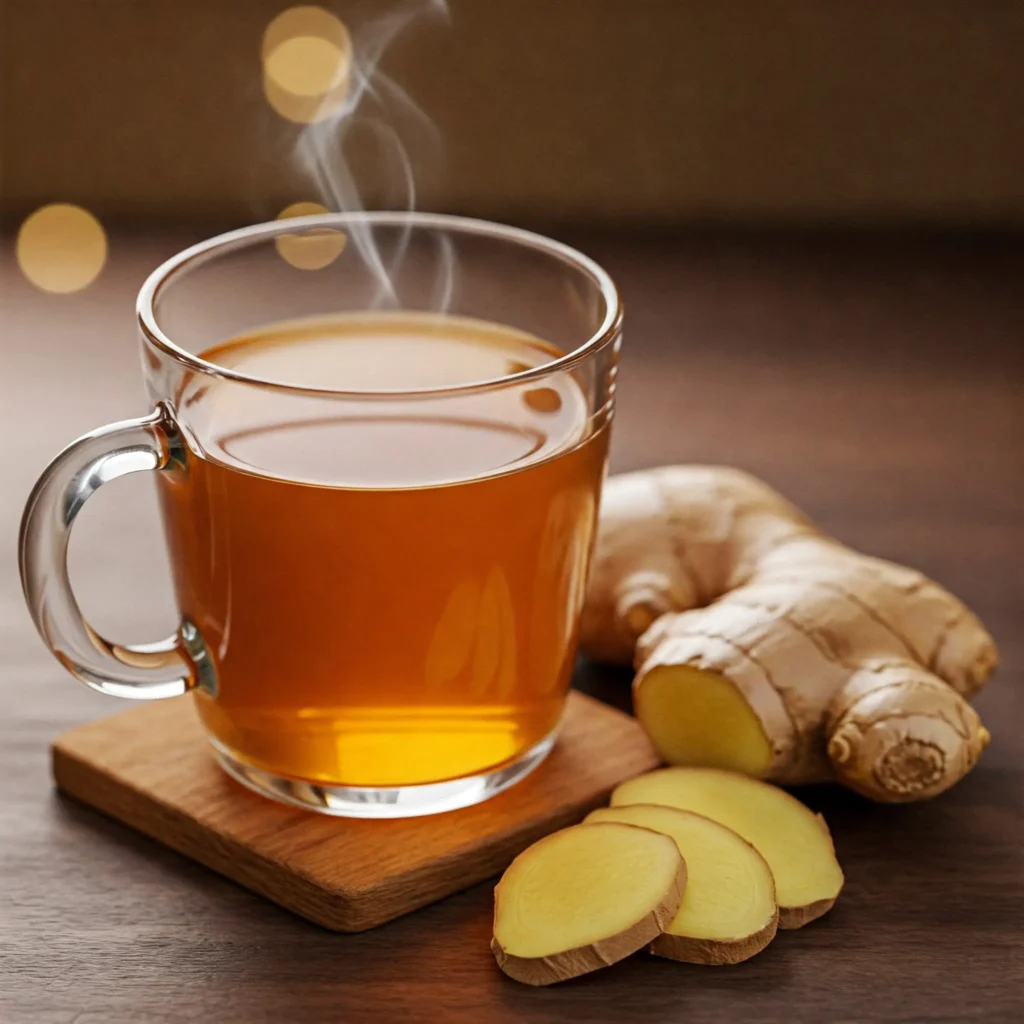
Ginger tea, made from Zingiber officinale, is a warming, spicy drink that’s great for increasing lymph circulation. Its active compound, gingerol, seems likely to help reduce inflammation and swelling in lymph nodes, supporting the lymphatic system’s flow. It’s also a traditional remedy for cold and flu symptoms, which can add stress to your lymph system.
Research supports ginger’s anti-inflammatory effects, which can indirectly aid lymphatic health by reducing congestion (Ginger Turmeric Tea (Tonic)). It’s like a fiery friend for your lymphatic system, keeping things moving.
To make ginger tea, grate a 1-inch piece of fresh ginger and steep in hot water for 5-10 minutes. Add honey for sweetness, and enjoy. It’s perfect for a cozy evening, and it might just help you feel less puffy—talk about a win-win!
Additional Tips for Lymphatic Health
Teas are fantastic, but they’re even better with lifestyle changes. Stay hydrated—aim for 2-2.5 liters of water daily, as suggested by health experts (Top Teas for Effective Lymphatic Drainage).
Exercise, especially activities like walking or rebounding, helps move lymph fluid. Dry brushing, using a natural bristle brush in circular motions towards your heart, can stimulate flow. And don’t forget lymphatic massages—they’re like a spa day for your lymph system. Eating a diet rich in fruits, veggies, and nuts also supports overall health, keeping your lymphatic system happy.
A Comprehensive Look at Teas for Lymphatic Drainage
This section dives deeper into the research, traditional uses, and practical tips for using teas to support lymphatic drainage, offering a thorough exploration for those eager to understand the science and history behind these remedies.
Understanding the Lymphatic System and Its Needs
The lymphatic system, often called the body’s drainage network, is crucial for removing waste, toxins, and excess fluid from tissues. It includes lymph nodes, vessels, and organs like the spleen, working alongside the immune system to fight infections. When it becomes sluggish, you might notice swelling, fatigue, or puffy eyes—signs that lymphatic drainage is needed. Conditions like lymphedema, where lymph fluid builds up, highlight the importance of keeping this system flowing, and teas can play a supportive role.
Research suggests that the lymphatic system lacks a pump like the heart, relying on muscle movement and external aids to move fluid. This makes teas with diuretic and anti-inflammatory properties particularly valuable, as they can help reduce fluid retention and ease congestion, supporting the system’s natural function.
How Teas Support Lymphatic Drainage
Teas can aid lymphatic drainage through various mechanisms. Diuretic teas, like dandelion, increase urine production, helping remove excess fluid and reduce swelling. Anti-inflammatory teas, such as green tea and ginger, reduce inflammation, which can impede lymph flow. Antioxidant-rich teas, like yaupon, protect cells and support immune function, indirectly benefiting the lymphatic system. These properties, backed by both traditional use and emerging research, make teas a natural ally for lymphatic health.
Historically, many cultures have used herbal teas for detoxification, with Native Americans brewing yaupon tea for purification rituals and Europeans using cleavers for lymphatic support. While scientific studies are still catching up, the anecdotal evidence is strong, and modern research is beginning to validate these uses, especially for inflammation and immune support.
Detailed Analysis of Top Teas
Below, we examine the top teas for lymphatic drainage, including their benefits, scientific backing, and preparation methods, presented in a table for clarity, followed by detailed notes.
| Tea | Source | Key Benefits | Scientific/Traditional Evidence | Preparation |
| Red Root Tea | Ceanothus americanus | Reduces swollen lymph nodes, relieves stagnation | Study on thalassemic patients showed improved spleen function (PMC Study) | Steep 1-2 tsp in hot water, 10-15 min, add honey/lemon |
| Cleavers Tea | Galium aparine | Eases congestion, supports detoxification | Immunomodulatory activity shown in lymphocyte proliferation (PMC Study) | Steep 1-2 tsp in hot water, 10 min, cucumber-like taste |
| Green Tea | Camellia sinensis | Reduces inflammation, supports immune function | Anti-inflammatory properties documented (PubMed Study) | Steep 1 tsp at 175°F, 2-3 min, can ice |
| Dandelion Tea | Taraxacum officinale | Diuretic, removes excess fluid, detoxifies | Traditional use for liver/kidney support, diuretic effect recognized (CNM Article) | Steep 1-2 tsp root/leaves, 10 min, hot or cold |
| Ginger Tea | Zingiber officinale | Increases lymph circulation, anti-inflammatory | Anti-inflammatory effects supported (Edible South Florida Recipe) | Grate 1-inch ginger, steep 5-10 min, add honey |
| Yaupon Tea | Ilex vomitoria | Anti-inflammatory, potential lymphatic support | Emerging research on reducing inflammation, especially in lymphatic system cancer (Yaupon Brothers Blog) | Steep leaves, no tannins, long steeping possible |
Red Root Tea: A Deep Dive
Red root tea, from Ceanothus americanus, is often considered the gold standard for lymphatic drainage. It’s traditionally used for reducing swollen lymph nodes and relieving fluid stagnation, with a 2010 study in PMC showing improved spleen function in thalassemic patients, highlighting its impact on lymphatic organs (Can Homeopathy Bring Additional Benefits to Thalassemic Patients on Hydroxyurea Therapy? Encouraging Results of a Preliminary Study). This makes it a strong choice for those with lymphatic congestion, and its bitter taste is a small price for the benefits.
Cleavers Tea: The Lymphatic Solvent
Cleavers, or Galium aparine, is a traditional herb for lymphatic health, known for easing congestion and moving lymph fluids. A study in PMC demonstrated its immunomodulatory activity, stimulating lymphocyte proliferation, which supports immune function and, by extension, the lymphatic system (Immunomodulatory Activity and Phytochemical Profile of Infusions from Cleavers Herb). Its crisp, cucumber-like taste makes it a refreshing choice, and it’s often used in blends for detoxification.
Green Tea: Beyond the Cup
Green tea, from Camellia sinensis, is rich in EGCG, an antioxidant with anti-inflammatory properties. While direct studies on lymphatic drainage are scarce, its ability to reduce inflammation can prevent blockages, supporting lymph flow (Green tea extract inhibits the lymphatic absorption of cholesterol and alpha-tocopherol in ovariectomized rats). It’s a daily staple for many, and its mild flavor makes it easy to incorporate, offering unexpected benefits for lymphatic health.
Dandelion Tea: The Detox Hero
Dandelion tea, from Taraxacum officinale, is a diuretic dynamo, helping remove excess fluid and toxins, which supports lymphatic drainage. Its traditional use for liver and kidney support is well-documented, with research recognizing its diuretic effect, making it ideal for reducing water retention (9 Ways Dandelion Boosts Health). It’s an unexpected ally, perfect for those feeling bloated, and can be enjoyed hot or cold.
Ginger Tea: Warming the Flow
Ginger tea, from Zingiber officinale, warms the body and increases lymph circulation, thanks to gingerol’s anti-inflammatory properties. Studies support its role in reducing inflammation, which can ease lymphatic congestion (Ginger Turmeric Tea (Tonic)). It’s a spicy, comforting drink, and its benefits for lymph flow make it a great addition to your routine, especially during colder months.
Yaupon Tea: The Emerging Contender
Yaupon tea, from Ilex vomitoria, is less known but promising for lymphatic health. It’s rich in antioxidants and has anti-inflammatory properties, with emerging research suggesting benefits for reducing inflammation in the lymphatic system, particularly in cancer studies (Is Yaupon Better Than Coffee? YES!). Its lack of tannins allows for long steeping, making it a unique choice for those exploring new teas.
Practical Tips for Preparation and Consumption
Preparing these teas is simple, but a few tips can enhance the experience. Use filtered water for the best taste, and consider organic options to avoid additives. For red root tea, steep 1-2 teaspoons in hot water for 10-15 minutes, adding honey or lemon for flavor. Cleavers tea can be combined with dandelion for a detox blend, steeping 1 tablespoon of the mix for 15 minutes. Green tea should be steeped at 175°F for 2-3 minutes to preserve nutrients, and ginger tea can be spiced up with a pinch of cayenne for extra warmth.
Always consult a healthcare provider before starting, especially if pregnant, breastfeeding, or with medical conditions, as some teas may interact with medications or have side effects. For example, dandelion can affect blood sugar levels, so monitor if you have diabetes.
Lifestyle Enhancements for Lymphatic Health
Teas are powerful, but combining them with lifestyle changes maximizes benefits. Hydration is key—aim for 2-2.5 liters of water daily, as suggested by health experts (Top Teas for Effective Lymphatic Drainage). Exercise, like walking or rebounding, helps move lymph fluid, as the system relies on muscle contractions. Dry brushing, using a natural bristle brush in circular motions towards the heart, stimulates flow and exfoliates skin. Lymphatic massages, performed by professionals, can also enhance drainage, offering a spa-like experience for your lymph system. A diet rich in fruits, vegetables, nuts, and seeds supports overall health, providing nutrients that keep your lymphatic system thriving.
The Big Picture
In conclusion, teas like red root, cleavers, green tea, dandelion, ginger, and yaupon offer promising support for lymphatic drainage, with research and tradition backing their benefits. By incorporating these into your routine, along with lifestyle changes, you can help your lymphatic system flow freely, reducing swelling and boosting immunity. So, why not brew a cup today and give your body the love it deserves? It’s a simple step towards feeling lighter and healthier, and who knows, you might just discover a new favorite tea along the way.
Key Citations
- Top Teas for Effective Lymphatic Drainage
- Cleavers | Traditional Medicinals
- Immunomodulatory Activity and Phytochemical Profile of Infusions from Cleavers Herb
- Can Homeopathy Bring Additional Benefits to Thalassemic Patients on Hydroxyurea Therapy? Encouraging Results of a Preliminary Study
- Yaupon Tea: Nutrients, Benefits, Side Effects, and More
- The 6 Best Teas for Lymphatic Drainage (Ease Swelling)
- Lymphatic Herbs: Ceanothus, Red Root for Healthy Lymph Function
- Cleavers | Herbs | Herbal Reality
- Cleavers: Lymphatic Spring Cleanse
- Using Cleavers the Herb To Clean Up Your Lymph
- 9 Ways Dandelion Boosts Health
- Ginger Turmeric Tea (Tonic)
- Is Yaupon Better Than Coffee? YES!
- Green tea extract inhibits the lymphatic absorption of cholesterol and alpha-tocopherol in ovariectomized rats

